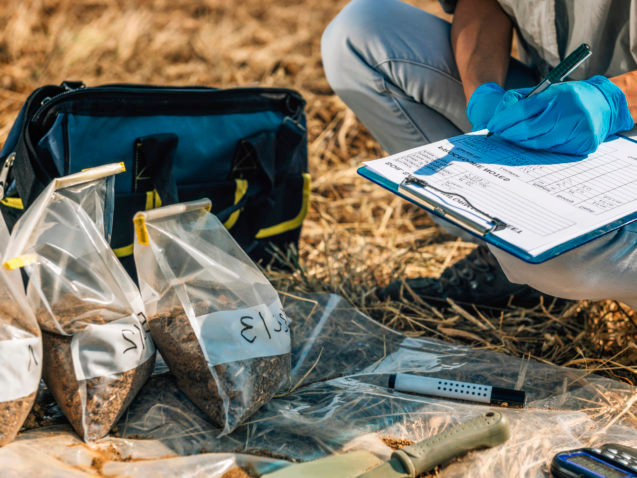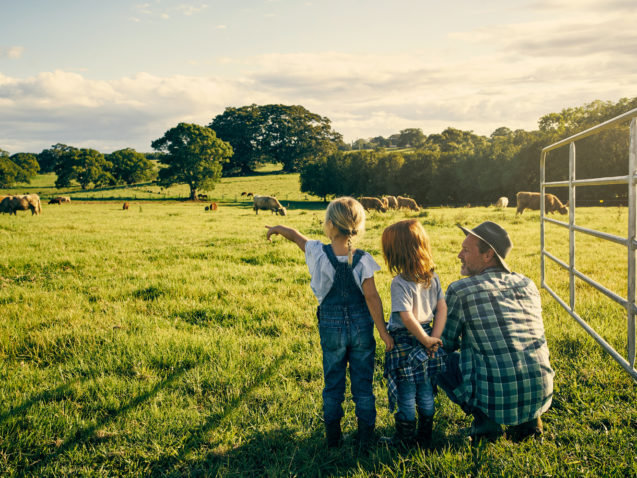Europe already leads the world on food safety and when the European Commission launched its Farm to Fork Strategy earlier this year, it said it wanted the EU to become the global gold standard for sustainable food.
It’s a lofty ambition, but one which the food and drink industry is fully committed to.
But we must emphasise that it simply won’t be possible unless we invest in research and innovation (R&I) and provide the legislative environment that lets our innovators – in both the public and private sectors – to develop solutions that enable us to go carbon neutral by 2050, improve our health, protect nature, and deliver on the EU Green Deal.
Here are five ways EU decision makers can ensure Europe becomes the food innovation capital of the world:
1. Provide adequate funds to sustainable food systems
Horizon Europe is the European Commission’s flagship programme to support R&I, and R&I investment is fundamental to fulfil the objectives of the Green Deal. We are therefore greatly concerned to see the proposed budget for Horizon Europe that is not proportional to the challenges that lay ahead, particularly in areas relevant to the food and drink sector. We urge policy makers to increase the focus, and investment, on sustainable food and drink innovation (you can read more about our position on Horizon Europe here).
2. Develop a predictable, science-based policy environment
Aside from adequate funding business needs a policy environment that enables the development of new sustainable products and technology. In a 2019 BusinessEurope survey, companies ranked innovation-friendly EU regulation as the second most important issue (after R&I funding) that the EU should improve in order to help companies to scale up their R&I investments. The food and drink industry is on the cutting edge of innovation – whether developing alternatives to plastic packaging, finding ways to preserve food to avoid food waste or fortifying foods to beat malnutrition. But industry needs more predictable, science-based regulation to give it confidence to invest in the future.
3. Promote more collaboration
While the industry is actively engaged in R&I towards more sustainable food systems, we do not claim to have all the answers. We must collaborate. For Horizon Europe to succeed, it must also consult all R&I players, including food and drink businesses, in the setting an inclusive strategy. Within the current H2020 programme there are some very positive examples already in place including the SMARTCHAIN project, which aims at enhancing sustainability of short food supply chains. The FIT4FOOD2030 project which seeks to mobilise a wide variety of stakeholders to future-proof the EU food system, in which the European Technology Platform ‘Food for Life’ is partner, is another good example.
4. Build skills
New skills and competences in the food sector’s workforce are required to successfully address and react to the new challenges and opportunities for the food sector. FoodDrinkEurope is a partner in the ERASMUS+ Knowledge Alliance project ASKFOOD, which aims to create a link between businesses and higher-education institutions in the food-related sectors to identify and address existing and emerging skills needs. We are also involved in FIELDS, an ERASMUS+ Sector Skills Alliance focusing on skill needs for sustainability, digitalization, and the bio-economy in agriculture. We encourage decision makers to provide more support in this important area.
5. Incorporate R&I into the Farm to Fork Strategy
The results from R&I projects are not only helpful for further research, or to develop new and better products and services, but they can also help shape policy making. The latest available reliable scientific evidence should be the driving force for the Green Deal and the Farm to Fork Strategy and should have a formal route to be incorporated into policy making.
The EU has certainly woken up to the urgency for a step change in the way we grow, process and consume our food and drink through the publication of its Green Deal ambition and the Farm to Fork Strategy.
But if it truly does want to be the global standard for sustainability, it must increase its commitment to R&I in order to develop and test solutions, overcome barriers and uncover new market opportunities for more sustainable food systems. Only then can we make Europe the R&I capital of the world.





